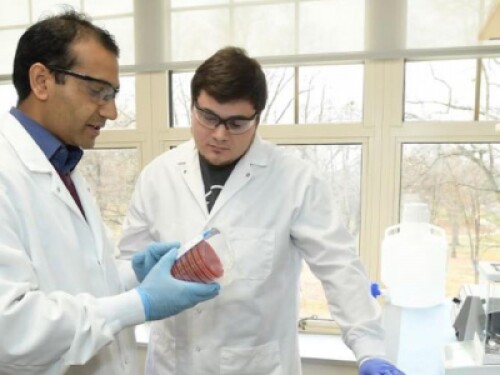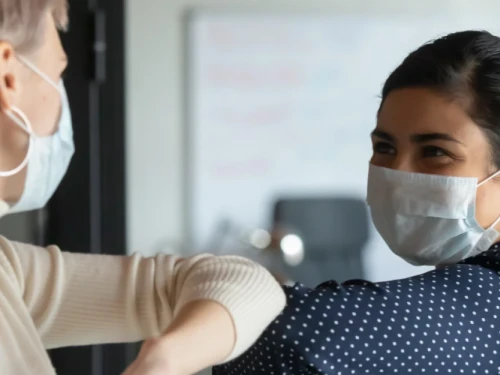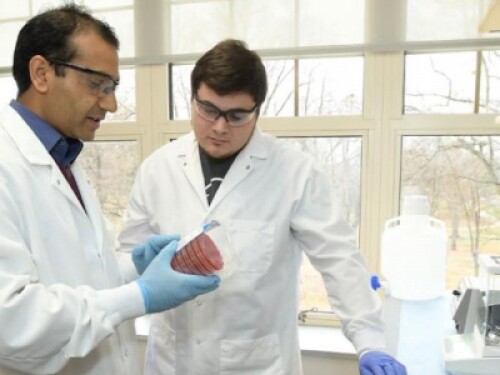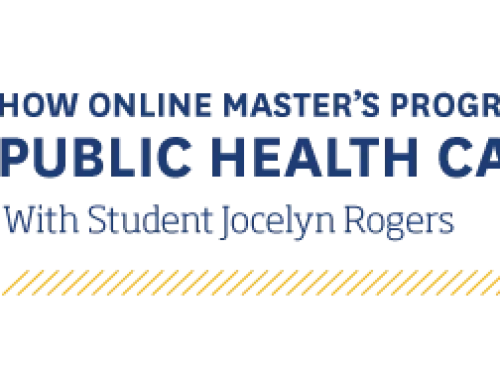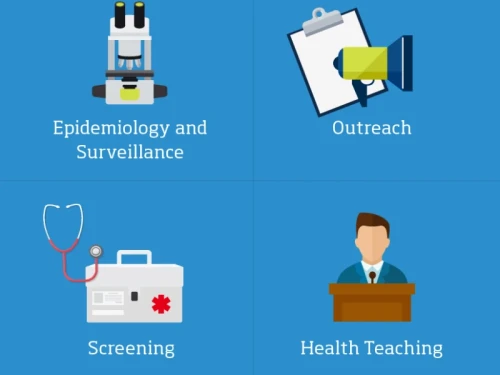Clinical Epidemiology
Clinical epidemiology is a vital field that combines research and healthcare to study patterns, causes, and effects of diseases in populations. With applications ranging from infectious disease prevention to chronic illness management, it plays a key role in shaping public health policies and improving community well-being. Professionals in this field contribute to groundbreaking research, develop strategies to combat health crises, and help advance healthcare systems globally.
Related Blog Posts
Kent State University’s College of Public Health (COPH) faculty are engaged in community-based, relevant research and public health programs, continuing the tradition of excellence and service that began when Kent State was founded as a public research university in 1910. In this post, we introduce you to three of the COPH professors who are actively engaged with their communities and their students, and with advancing knowledge in their areas of expertise.
I am a professor and the associate dean for Research and Global Affairs. I teach undergraduate, master, and doctoral-level courses. Most courses I teach focus on applying theory to developing, implementing, and evaluating community-based public health programs. I direct doctoral dissertations and advise MPH students. In my role as associate dean, I facilitate the research enterprise in the College, including pre and post-award activities, research compliance, and serve on university research-related committees. In addition, I develop research projects with other institutions abroad, faculty and student exchanges, and promote faculty and student research.
Public health careers are broad and varied, and for those who are passionate about changing lives for the better, they present an immense opportunity to fill growing needs in the field. A Master of Public Health degree demonstrates your pursuit of advanced knowledge, desire to lead, and a set of professional skills needed to succeed in a variety of healthcare careers and public health roles.
Public health experts have never been more important than they are in the world today. From cancer to Ebola to COVID-19, major health events affect us all. As globalization, climate disasters and economic and social disruptions expand, we need trained professionals to help mitigate those threats. To meet health needs, public health professionals continue to serve and protect through research, policymaking and administration in the field of infectious disease preparedness and prevention. Specialists in the field of epidemiology are responsible for some of today’s most important public health research and data analysis.
As 2021 comes to a close, we’re taking a look at some of the top public health problems that faced the world in the past year. While some are more obvious than others, they all tie together to form a picture of the biggest challenges facing humanity today and give us a clue as to what to expect in the future.
The Centers for Disease Control and Prevention (CDC) define epidemiology as the study of the distribution and determinants of health-related states and events in specified populations.1 To complete this study of “health-related states and events”, scientists use a tool called the epidemiologic triangle, or the epidemiologic triad.
The Bureau of Labor Statistics estimates that healthcare positions will grow by 4.6 million by the year 2029 and that six out of the 10 fastest-growing occupations will be related to healthcare.1 Given recent global health events, it stands to reason that jobs in public health would be growing as well.
Epidemiologists are public health workers who investigate patterns and causes of disease and injury.
Public health careers appeal to different people for different reasons, just as certain universities make more sense for certain individuals. The university you choose should be a conduit through which you can achieve your aspirations, and there are many factors to consider in the selection process. For some the most important of these may be prestige, while others may weigh connections or affordability more heavily.
If “public health” refers to caring for the collective health of a population, then “public health economics” is the science of how a society takes on and manages this responsibility with limited resources. Public health policy is broad: While some of it does focus directly on healthcare, other areas as disparate as environmental protection, individual habit change and infectious disease control all contribute to the economics of public health.1 Studies indicate that there are economic benefits to preventing disease, not just for sick individuals, but for society at large.
Evidence-based public health interventions have saved millions of lives since 1854, when Dr. John Snow first identified a public water well as the source of a major cholera outbreak in London. In the decades since, public health interventions have been instrumental in improving the health and well-being of people in large and small communities.1
Throughout the mid-19th century, clinicians noted the impact of socio-environmental factors on healthcare. From unusually high incidences of breast cancer in Italian nuns to cancers that only seemed to affect chimney sweeps in Great Britain, medical literature of the period carefully traced the connections between cultural background and wellness. This led some physicians to theorize that disease was strongly related to societal dysfunction and inequality, and that improving schools and working conditions could help to alleviate disparities in mortality across social classes.



